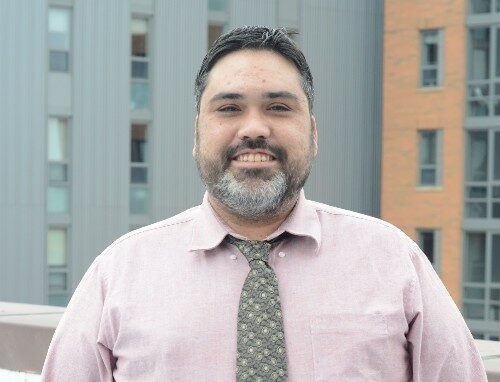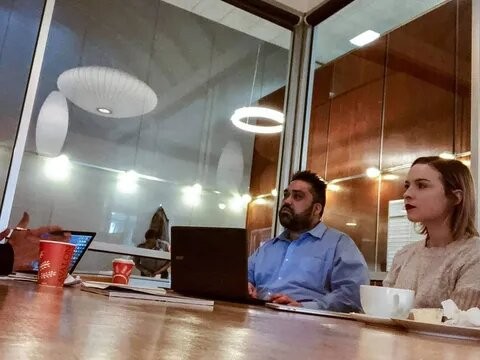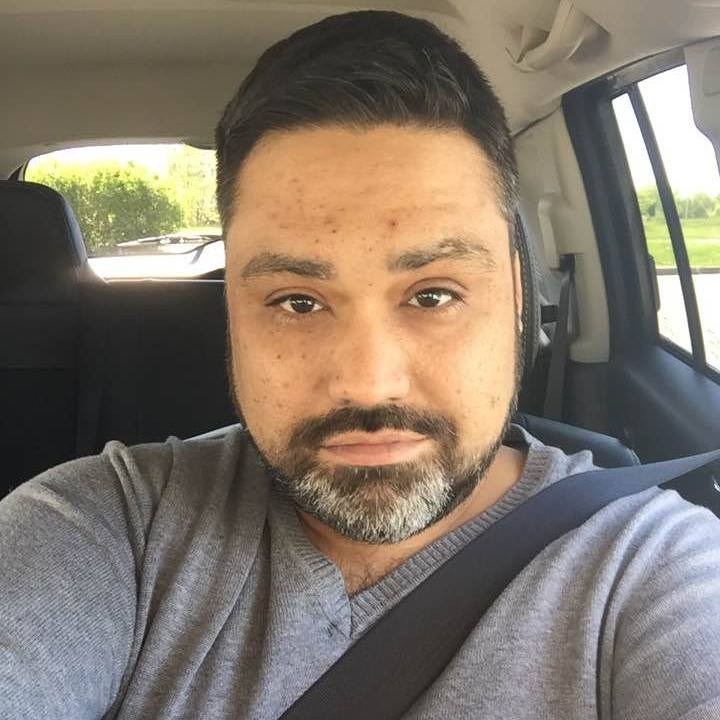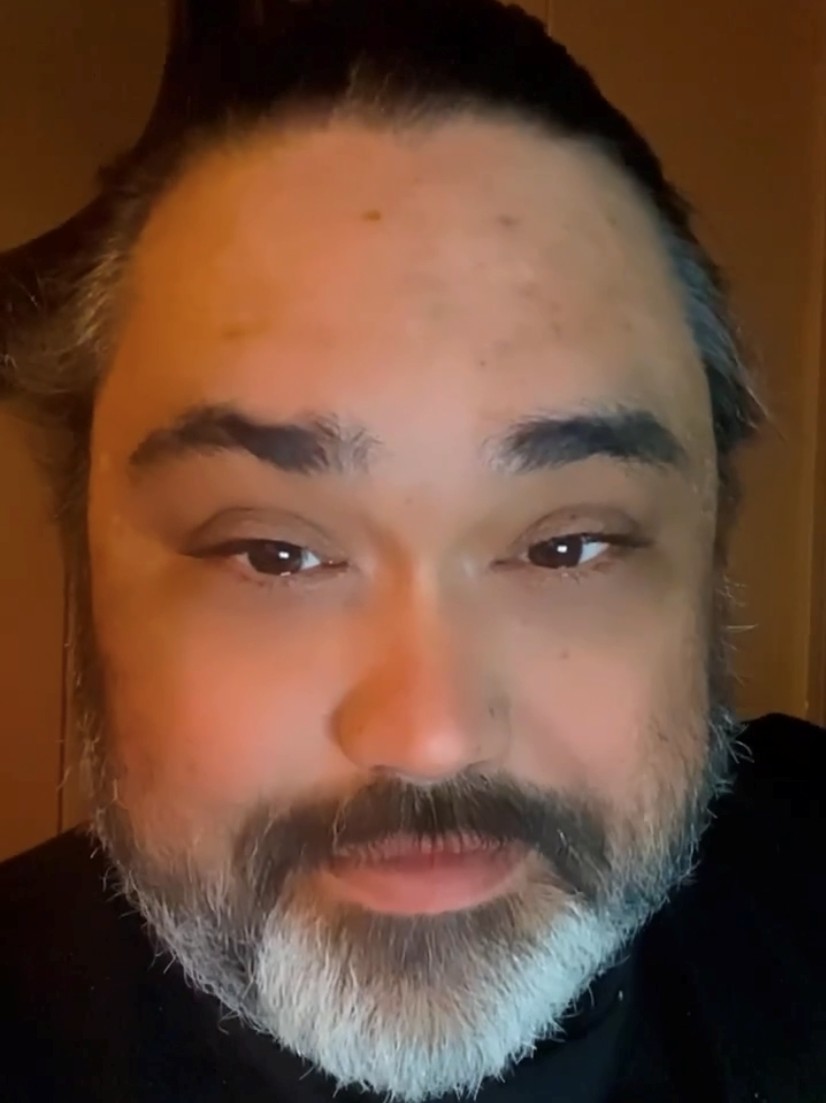

Today we’d like to introduce you to David Morales.
Hi David, it’s an honor to have you on the platform. Thanks for taking the time to share your story with us – to start, maybe you can share some of your backstories with our readers?
When I was a kid, my favorite band was The Cure. I grew up listening to all genres of music but what I liked most was the beat. I think this is why I started out playing drums and soon joined a rock band in high school. As the years progressed, we became more serious about our music. But there are certain dynamics that bands face when it comes to monetizing their brand. For example, it is best for a band to form an operations agreement so that everyone is paid accordingly when the money comes in. The band members decided I was worth about 30% because they claimed I did not participate in the songwriting. So instead of including me in the operations agreement, they treated me as a freelance drummer who performed with them on gigs. However, the band at this time was not making any money, or so I thought, so I did not think too much of this. I just wanted to play drums. Later the band decided to record an EP, and instead of recording me, they used a drum machine. They did this so they could exclude me from any royalties in the future. It wasn’t until we played at a friend’s wedding that I realized that the band was getting paid for shows, and they were not paying me a dime. This scenario created a lot of resentment for me, and I soon left the band. This is a major reason why I became an Artist Manager. After I graduated with a BS in psychology, I went on to pressure an MSW. Unfortunately, social work was not what I expected, and I burned out within a year. On the one hand, I was devastated because I put so much time and effort into training as a psychotherapist, and on the other, I was excited to start on a new adventure and career. But I wasn’t sure exactly sure what I wanted to do. One thing that I love about social work is writing about people. So, I got a journalist job and started writing about politics and pop culture. This was when I started contacting music publicists who secured me interviews and access to live events for reviews. By doing this, I met all sorts of artists and their managers, booking agents, and other industry professionals. I was interested in who did what and how the music industry worked. My past experiences as a drummer and the fact that I love working with people gave me footing into my adventure to start my business, DCYPHER STUDIOS. I used this business model as a platform to gain access to a graduate program where I received an MA in Arts Administration. I pursued this education because it was a personal goal but working with artists directly and their producers have taught me the majority of what I know about the music industry and what artists need in this day in age to build a fanbase. Music brought me to Nashville as there is a major industry for music hence the name “Music City. ”
I’m sure you wouldn’t say it’s been obstacle-free, but so far would you say the journey has been fairly smooth?
I measure success by overcoming adversity. I was taken advantage of when I knew nothing about the industry, and many artists out there are victims of the same scams. There are many scams in the music industry, such as Spotify Hijacking and fake promoters claiming direct connections to top A&R reps for major labels. In wanting so desperately to break out in the music industry, many artists are taken in by these activities. Today numbers mean a lot, and to get noticed, metrics are a reality. An artist must have a strong fan base and the numbers to prove it on social media and streaming platforms. The more followers an artist has, and the more likes for every post indicates a measure of success. This is why many artists are tempted to purchase likes and followers so that they appear to have a strong fan base and fall for these scams. But this only hurts marketing efforts as it skews demographics, making it hard to determine who is listening and who is a true fan. In marketing, we use KPIs to gauge critical initiatives, objectives, and goals based on these numbers. My primary goal as an artist manager is to create opportunities for artists, which often means consultation and protecting artists from these scams. But I strongly believe in the artist I represent and feel that slow organic growth and gaining fans based on merit is better than fake numbers. After all, 50 fans in Nashville is better than 10 000 fake bots. So I am saying that sticking to your values is essential when overcoming adversity. Make great music, develop a team, stick to your plans, and make new goals. There are a lot of opportunities out there for artists, and the industry is abundant but being patient is key. An artist needs to understand that people are watching and that things are happening even if it seems they are not.
Thanks for sharing that. So, maybe next you can tell us a bit more about your business?
I am an Artist Manager. I am responsible for running the day-to-day business operations for an artist. I develop business plans, which include an audience analysis with a strategic and tactical marketing focus. I am responsible for publishing administration and act as a sync agent to secure sync deals for movies, radio, TV commercials, and video games. I facilitate marketing efforts and run PR campaigns for media exposure. I am active on social media and ensure that I maintain a strong web presence. I also oversee booking and coordinate events. I provide consultation and guidance with finance, including creating budgets and preparing taxes for artists. What sets me apart from other artist managers is that I believe strongly in educating the artists I work with to become self-sufficient so they can someday manage the business operations independently. Some would say that giving away the secrets to my craft will put me out of business, but I strongly disagree. There are so many opportunities out there, and the more an artist knows about their craft, the more I can find opportunities for them. We should work together as a team. I take pride in working with a diverse set of artists. I learn from them, and I am proud that I can help make people’s dreams come true. An artist manager should be close to their artists. Many times artist managers are friends or family members. They are the people close to them, and trust is required to establish a strong communication network.
The concept of my business revolves around the management practice of vertical integration, a strategy that implies the interconnectedness of the artist as both independent and a participant in a larger economic system, and the use of technological advances, in an effort to establish a pattern of growth locally, regionally, and nationally, with additional growth opportunities that have global potential. My mission is to establish an approach to the music industry from the independent entrepreneurs’ perspective.
Synergy and integration are the keys to establishing a network and maintaining symbiotic relationships with established artists, venues, and other independent industry-related businesses. These relationships serve as an axis for generating opportunities that rotate throughout a growing network centered around monetizing intellectual property and its subsidiary revenue streams.
What was you like growing up?
I grew up in Jackson, Michigan. I was always kind of a troublemaker growing up. I was always in trouble in school for something. It interfered with my education, but fortunately, my mother was a teacher and encouraged me to do good in school. I had a supportive and loving family, and I am the youngest of two brothers. I was a happy, carefree kid in the late 80s and early 90s. I liked watching Voltron and The Surfs every Saturday morning and actively played recreational soccer on the weekends. I collected baseball cards and something called Garbage Pail Kids. It was an 8os thing. I think my childhood was a typical American experience as I played games with the neighborhood kids, such as sandlot baseball.
I loved to ride my bike and play video games. My family was always going on vacation together, and we would go camping and visit museums and explore artifacts all over the country. We always went on adventures. I was raised in a Baptist church as my parents were very religious. My mother had a degree in theology from Campbellsville University in Kentucky before obtaining a teacher’s certificate from the Unversity of Michigan. I come from a biracial family. My father was born in Puerto Rico in 1932; my mother is white and was born in Flint, Michigan. Because of this, I had a unique perspective on my racial identity. Overall I was a good kid. I think back, and it was a very happy time. I am thankful to have had a loving and supportive family as a child.
Pricing:
- I take a 20% commission of an adjusted gross income if I am managing an artist.
- I sometimes charge a fee for creative services. This is in the form of a monthly retainer. which is based off the clients budget.
- I take 30% of the sync fee when if I secure a sync deal.
- I take 50% on royalties if i am actively involved in publishing.
- 10% commission on booking
Contact Info:
- Website: dcypherstudios.com
- Instagram: https://www.instagram.com/dcypherstudios/
- Facebook: https://www.facebook.com/dcypherstudios
- Twitter: https://twitter.com/dcypherstudios
- Youtube: https://www.youtube.com/c/Dcypherstudios
- Yelp: https://www.yelp.com/biz/dcypher-studios-detroit
- SoundCloud: https://soundcloud.com/dcypher-studios
- Other: davidtmorales.com




Image Credits
This picture with me in the blue shirt and the young lady was taken by Arturo Herrera from Barbed Magazine. The feature photograph was taken by Megan Lacroix of Arson Captial Magazine.












